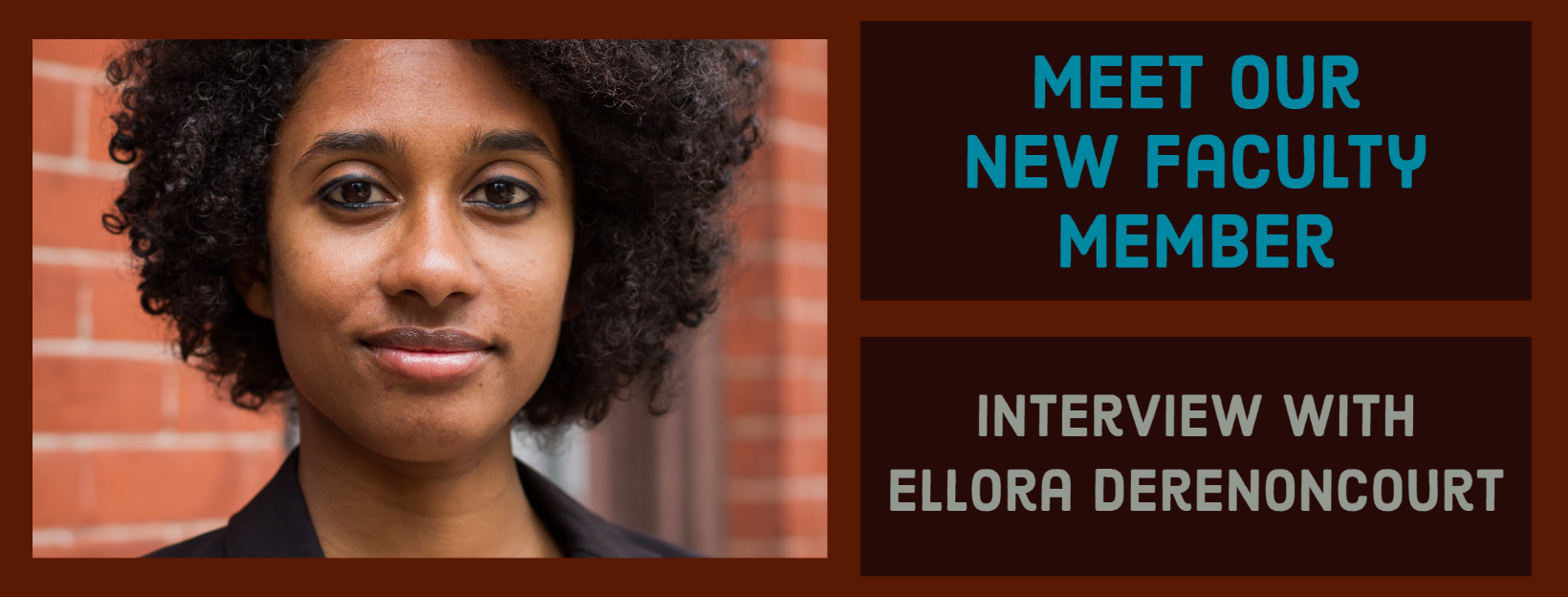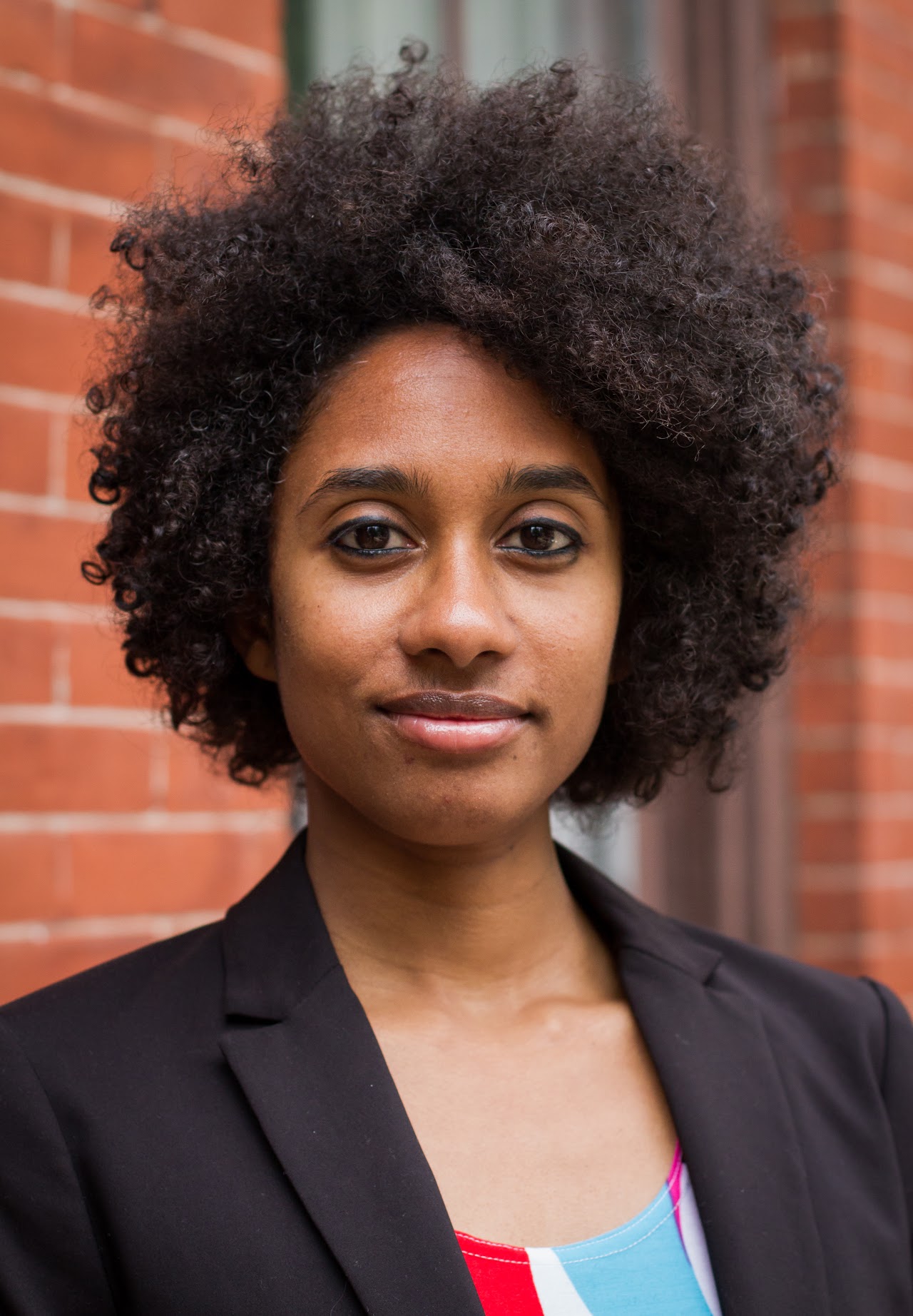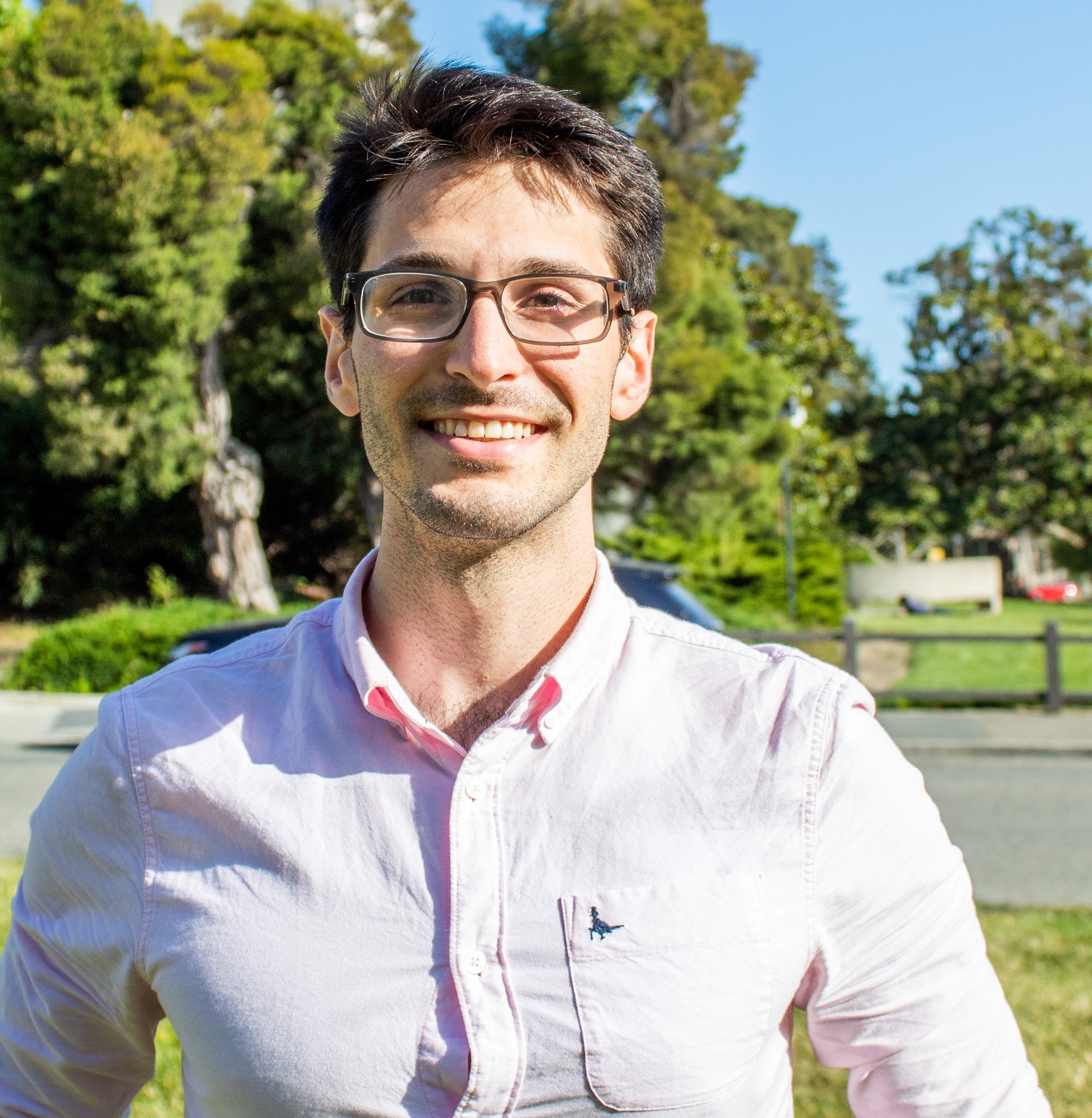Interview with incoming faculty member Ellora Derenoncourt
Fourth-year Ph.D. Candidate Jakob Brounstein in conversation with Professor Ellora Derenoncourt, who joined the faculty in July 2020.

We are very excited to welcome economist Ellora Derenoncourt to the department this coming academic year. Professor Derenoncourt earned her Ph.D. from Harvard University in 2019 and recently completed her post-doctoral studies at Princeton University. She will be joining both the Department of Economics and the Goldman School of Public Policy as an assistant professor this fall.
Professor Derenoncourt’s research lies at the intersection of labor economics and economic history. Within these areas, her work engages with various facets of inequality—such as the impact of the Great Migration on intergenerational economic mobility and the role of minimum wage policy in reducing the Black-white income gap in the US.
Economic and racial inequality are themes that are present throughout much of your work. What kinds of broader questions do you aspire to inform with your research? How do you view your role as an economist in informing both academic and popular discussions surrounding these kinds of inequalities?
Part of the reason I’m drawn to economic history is that when you turn the clock back far enough, one encounters large shocks in history that have altered the trajectory of our institutions and have had lasting impacts on economic progress and economic disparities between groups. The challenges we face in terms of inequality today are so profound that periods of historical transformation—like the end of slavery, the income compression that occurred during and after WWII, or the processes of upward mobility that ran aground during the backlash to the Great Migration—are once again relevant. So one of the broader questions that motivates me is what can we learn from the past, in moments of great convergence or divergence, to guide us in reducing inequality going forward?
On that note, what are some topics of research you are working on right now?
Aside from the projects listed on my website, I’m currently excited about a project on Black suburbanization and reverse migration to the South from 1970-2020—as large or larger than the Great Migration—with a focus on whether Black intergenerational outcomes improved as a result. I’m also working on the long-run evolution of the racial wealth gap from 1850 to the present, where my co authors and I are trying to understand the forces behind the remarkable degree of persistence in the wealth gap. Claire Montialoux and I are working with a larger team to examine the role of labor market institutions in reducing the racial inequality, historically in the US and in other post-slavery societies, like Brazil. Finally, I’m working on a project with a team at Brandeis on Amazon’s monopsony power in the low wage labor market—in particular, how their wage policies (e.g., going to $15 an hour in 2018) have spilled over to other low wage employers.
The COVID19 pandemic has caused instability and has impacted communities across the country and the world. Are there insights you’ve gained by observing these changes and the resulting policy decisions aimed at mitigating the effects of the crisis?
One thing that has become very clear is that inequality is a co-morbidity in the Covid- 19 pandemic. Black and Latinx workers have lowest working from home rates. Black children have very high rates of asthma, partly due to growing up in polluted disadvantaged neighborhoods. The racial wealth gap has been one of the largest and most persistent of economic gaps between Black and white households, meaning there is less for Black families to fall back on in this moment of economic crisis. The gap between the policies necessary to stave off lasting economic damage and those enacted put the role of our political system in sharp relief. Pandemic unemployment compensation and assistance have been a bright spot, however, and if extended and carried out as designed, could mitigate some of the structural issues with our unemployment system and wages throughout the country.
In your work on the Great Migration, you illustrate that localities that saw greater inward black migration significantly increased police investment in the following decades. Can you speak to this result and what you think it means, particularly in light of recent discussions about the role of police in the persistence of racial inequalities?
One facet of my work looks at the northern backlash against the Great Migration in the mid-20th century, which led to historically high opportunity locations becoming upward mobility traps for Black families and Black boys in particular. My work suggests much of this has to do with white flight, rising segregation, and how cities responded to worsening conditions in these once great cities (think of Baltimore and Detroit). I find that police are the only public service to see investment increases in metropolitan areas that were major destinations for Black southern migrants. Rioting in the late 1960s was also more intense in these locations. I think we are still living in the wake of that moment, which may have entrenched a certain form of policing in Black communities. Mismatch between police and communities (in the 1960s, it was often all-white police forces in all-Black neighborhoods) was probably a factor in these clashes and in the erosion of trust. What we are seeing today is a repetition of that historical playbook and reflects the ongoing sense of betrayal Black communities experience at the hands of the police and the state.
Between your studies at the LSE in human geography and your work in economic history, you have had considerable exposure to research methods in various disciplines outside of economics. How do you feel this broader background has informed your work?
Many of the questions I’m interested in do not have a long or recent precedent in economics. To give an example from a current project, there is virtually no work in economics studying the reverse migration of Black Americans to the South or to suburbs since 1970. The only quantitative work on this question that I have identified to date is in demography. So looking outside of economics has not only informed my work but has been necessary, for hypothesis guiding and for understanding the context behind a particular phenomenon I wish to study from an economics standpoint.
The field of economics has historically had difficulty attracting and promoting researchers from underrepresented minority backgrounds. How do you view the role of representation in advancing knowledge in the social sciences?
Well, I want to first point out that this is an equity issue and a question of occupational segregation. Economics PhDs are highly remunerated. Why are Black students and students from other underrepresented groups interested in the social sciences more likely to matriculate in other fields? Somewhere along the way, many received the impression that economics was not the field for them. This nearly happened to me until I met the right set of mentors. Now I cannot imagine any other vocation than being an academic economist, the fit is so good. So whether it’s steering, lack of exposure, or active discouragement, addressing the underrepresentation of Black and Latinx students and women in economics is an equity issue. Second, an environment where people from different socioeconomic backgrounds have a voice has an entirely different feel from one where only an elite strata are present. It would be wonderful to get to the point where the field is diverse enough that it is a no brainer to study the many questions that are pertinent to poor and working people. Working to expand who becomes an economist is therefore critical for equity reasons and for making sure we produce knowledge on the frontier that is most socially useful.
What drew you to join the UC Berkeley Department of Economics? What kinds of collaborations are you most looking forward to at UC Berkeley?
I cannot think of a better department or university at which to work on issues of economic inequality. I look forward to working with Opportunity Lab affiliates and with my colleagues at the Goldman School of Public Policy on work targeted on addressing some of the most pressing issues of equity in our time.
What activities are you looking forward to experiencing in the Bay Area?
The sunshine, the natural beauty of the Bay, and being part of an active, politically engaged community (from the free speech movement at Berkeley to Oakland, where I’m living, original home of the Black Panther Party that fought for racial justice in the 1970s).
We are very excited to welcome economist Ellora Derenoncourt to the department this coming academic year. Professor Derenoncourt's research lies at the intersection of labor economics and economic history. Within these areas, her work engages with various facets of inequality—such as the impact of the Great Migration on intergenerational economic mobility and the role of minimum wage policy in reducing the Black-white income gap in the US.


